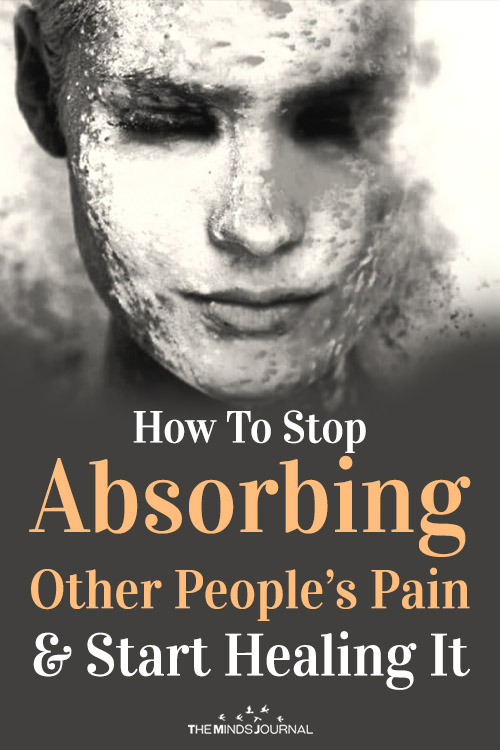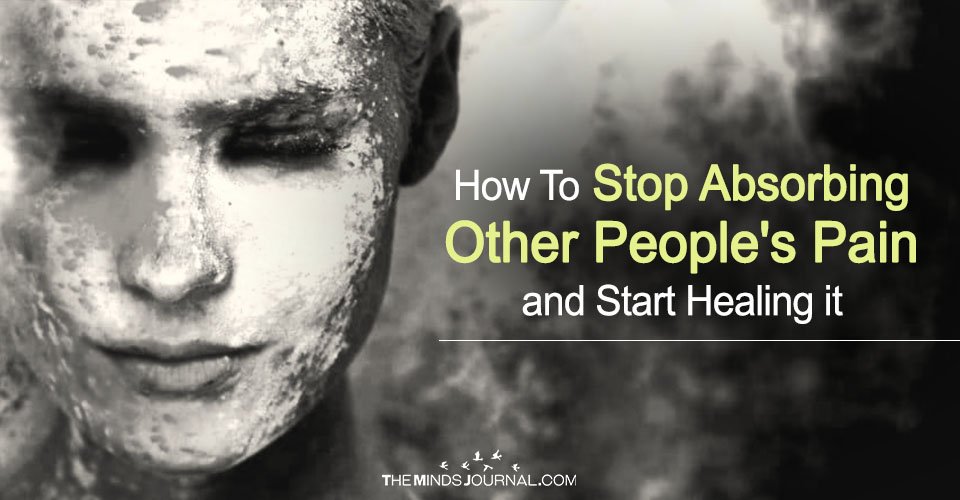Strategies for empaths to stop absorbing other people’s pain.
We’ve all had instances wherein we shied away from people or places that made us feel scared or stressed for no reason we could explain. This is because we all possess a certain amount of empathy.
We are always being guided by our own intuition and the spiritual energy of the universe, hence we are giving and receiving a certain set of vibrations at all times. Thus, all of us are empaths to an extent. But this is not always a good thing.
Being an empath allows you to sense when something is wrong with an individual or a situation. This becomes worse when a crowd of people are simultaneously consumed by dark thoughts.
But we can protect ourselves from these toxic vibrations and if not, at least ensure that the effect they have on us is minimal.
For some of us it is easier. We have invested a lot of time and energy in putting up walls that prevent us from experiencing the feelings of others as our own.
But others who are born with greater empathic skills are not so lucky and they often find themselves caught in a flood of emotions that are not theirs to begin with.
The latter category is blessed because they can use their skills to quickly uncover any kind of deception and often they are so adept that they can heal their own emotional scares easily in comparison to the scars of others who are not linked to them.
But it can also feel like punishment because of the flow of emotions around them is often too heavy for them to bear. They have difficulty being part of a crowd or meeting negative individuals. Sometimes they cannot distinguish between their emotions and that of others.
Read How to Stop Absorbing Other People’s Emotions
Maddy Malhotra rightly wrote that what we feel is up to us:
“Depression, anger, and sadness are states of mind, and so are happiness, peace, and contentment. You can choose to be in any of these states because it’s your mind.”
The problem for people who are skilled empaths is that they become insecure and try to please everyone because they’ve always had to absorb everyone else’s hurt and sorrow. They try to keep people around them happy so that they can also be happy
But this doesn’t always work as there is always at least one person who, despite their best efforts, is quite stubborn and wants to continue with their suffering.
In an effort to please them, the empath will take on their negativity because the negative person is more confident in their negativity than the empath is in their optimism.
Their confidence in their outlook, no matter how flawed it may be, will win over anyone who is not as secure in their view.
This is why the empath will have to actively make and assert their choice to not imitate the negative vibes emitted by others no matter how much pressure they are under.
They must concentrate and take charge of their own energy in order to be able to find the confidence required to prevent externalities from overwhelming them.
This confidence becomes even more necessary for the second part of the empath’s journey. Once they are strong enough to prevent others’ from overcoming their own emotions, empaths, instead of taking in others’ negativity and low vibrations, need to practice creating an impression of their own positive emotions on those who need it.
Empaths need to be very confident in their beliefs and their ideas about love and light and healing for this to happen. They need to be absolutely sure that love will conquer fear.
They must be ready to always offer affection, compassion and positive thoughts. Negative emotions like hate and anger should have no power over them.
It is important to do this in a manner that does not dismiss the suffering that others are going through. When they come to you with their negativity, their anger and sorrow is completely real and true.
Read 4 Ways To Cope With Negative Emotions
The empath’s job is to ensure that no action of theirs tells the other person that their negativity is completely okay. The empath has to give them understanding and support.
Instead of lowering their vibration to be at the same level as the other person’s, the empath has to raise theirs and force them to rise to meet it.
This isn’t an easy task by any means and empaths need to practice giving counsel and understanding while at the same time not using any words that could bolster negativity.
Just remember to stay calm and collected, to take deep breaths, and anchor yourself to your center so that your energy field remains undisturbed. This will ensure that you control what happens in this encounter.
Christina Gutierrez points out that energy is the same everywhere. It is up to us to transform the energy that causes us pain into the energy that heals us and those around us.
In fact, our own healing process allows us to release vibrations that prompt others around us to increase their frequencies. This becomes more powerful when it is done by empaths.
This won’t happen in a day but gradually, this method will make life better. If an empath manages to complete the healing process and release all they have suppressed, they will soon vibrate at such a high frequency that just being around them will be enough for others to be healed.
Read The Oldest Self-healing Method In The World: It Only Takes 10 Minutes A Day!
The world also becomes a much a nicer place for the empath to live in. They no longer feel like they have to constantly soothe the people around them because they are filled with their own light.
They feel like they are protected from the negativity of others and are no longer overwhelmed by it.
It is important to let empaths heal themselves and others. They can make this earth a beautiful place for all of us by healing one person at a time.
The Minds Journal Articles Volume -1 is Copyright Protected vide Regd.# L-103222/2021









Leave a Reply
You must be logged in to post a comment.